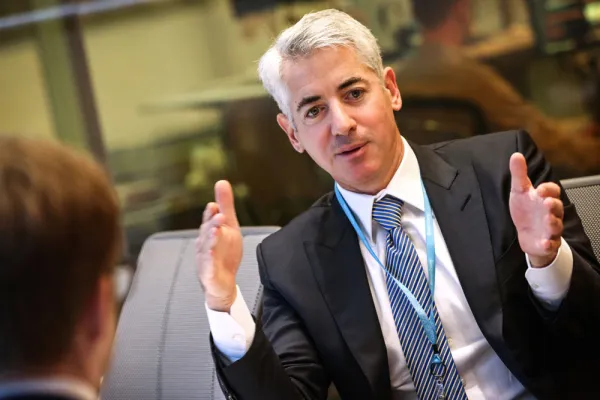On December 1, the economic gurus made it official: The U.S. has been in recession for a year. William Zollars, who runs giant Overland, Kansas–based trucking company YRC Worldwide, could have told them that a lot sooner. YRC makes its money ferrying materials and products, so it has long been a leading indicator of changing demand. Shipping volume has been sliding steadily for at least two years, and the company’s stock has been plummeting since March 2007. YRC’s share price, which topped $60 in 2005, was at $2.80 at the end of 2008.
But Zollars is as upbeat as a realist can be. Being a leading indicator, he notes, cuts both ways. "We may start hurting in a recession before anyone else," he says, "but then, we’ll see the recovery first too."
By the end of 2009, he promises, the lengthy process of integrating Roadway Corp., which merged with Yellow Corp. in 2003 to form the backbone of YRC, will be complete. YRC’s debt, which the company has been aggressively paying down, will be half the $1 billion it is now.
YRC’s labor costs should be more manageable too. In December, Zollars negotiated a novel agreement with the International Brotherhood of Teamsters, which represents about two thirds of YRC’s approximately 60,000 employees. The Teamsters took a 10 percent wage cut in exchange for a 15 percent equity share in the company. The union is also modifying the rules governing its multiemployer pension plan, in which company contributions are pooled to pay pensions
and health care for retirees of all Teamster-organized companies.
In a recent conversation with Institutional Investor Contributing Writer Claudia Deutsch, Zollars elaborated on the measures he thinks will get YRC — and the rest of the country — through the recession and keep them healthy well beyond.
Institutional Investor: YRC’s roots go back to 1924, so this is certainly not its first bout with recession. Don’t you have a slew of time-tested methods to get through down cycles?
Zollars: This is a lot more frightening than previous recessions. You’ve got an economic slowdown and a freeze in the credit markets and a mortgage crisis and, for a period of time, you had $150-a-barrel oil. We’ve had to throw out the old playbook. It just doesn’t work in these new circumstances.
What are some of the moves in the new playbook?
Take fuel surcharges. They’re written into our contracts, so we’ve always been able to pass along price hikes. But when the surcharges hit 25 and 30 percent, we had to let customers make them a bigger part of negotiations.
But we’ve also been building a financial cushion. The union agreement is a big part. On the nonunion side, we froze the defined benefit plan, and we eliminated the subsidy for retiree health care for Roadway employees, the only ones who had it. We’ve sold property and leased it back. We’ve been buying back bonds. That should help us cut our debt in half. And we’ve accelerated the integration of Roadway and Yellow. That integration should be done by the end of 2009, and it should save us at least $200 million a year.
Yellow bought Roadway in 2003, for goodness’ sake. Why wasn’t the integration completed years ago?
It’s not as easy as you think. We’ve been integrating backroom and management tasks for a while, and we’ve combined our corporate accounts people. But operational integration takes more time.
I don’t see why.
Roadway operated a hub-and-spoke network, like a lot of the airlines. Yellow scheduled its trucks on a point-to-point basis. We wanted both networks to operate point-to-point, but that meant negotiating flexibility about drivers’ territories. We couldn’t do that until our union contract came up for renewal in April 2008.
And we were worried about hurting brand loyalty. We tried to minimize change for Yellow and Roadway customers. For example, when we combined corporate accounts, we tried to ensure that big customers got to keep the same sales reps they dealt with before the merger.
As your customers increasingly move their manufacturing operations to places like China, isn’t your business bound to dwindle?
Actually, we are morphing from an American trucking company into an international transportation consulting company that happens to own trucks and other transportation assets.
For instance, we bought Shanghai Jiau, one of China’s largest ground transporters, in July, and our Chinese business has risen 28 percent since then. As our customers go increasingly global, they need more help with logistics. We have a group of industrial and logistics engineers who help customers solve supply chain issues — and the solution usually involves using some of our assets.
We have a unit that runs warehouses, handles customs and otherwise manages a customer’s supply chain. Right now it does not generate a significant part of our $10 billion revenues, but it is a global business that will grow.
Yet you’re still headquartered in Overland Park, Kansas. That location probably was logical when your main customers were heartland manufacturers. Does it still make sense?
This is an area where a high quality of life is gettable at a reasonable cost. That helps us recruit and keep talent. We have subsidiary headquarters and operations centers in lots of places. But I think if we tried to move the mother ship, we would have a mass employee rebellion.
Maybe employees are staying put, but shareholders are continuing to flee. Why aren’t they more impressed with your strategies and cost-cutting moves?
There is still a tremendous amount of excess capacity in trucking. We’re the biggest, with more than a 25 percent market share, so in an economic downturn we take a huge hit. And shareholders have always had an antiunion bias in this industry. Don’t forget, before the new contract, our [annual] pension-related costs were $28,000 per union employee, more than double the costs for the nonunion workers.
Won’t the new contract allay those fears?
Shareholders will certainly like the cost-cutting aspects, but I don’t know how they will feel about the employee ownership part. The union won’t get a seat on the board. We’ll probably issue shares in the form of warrants, so it won’t dilute the stock. But some shareholders may still find it hard to deal with.
You own and rent lots of vehicles. So are you affected by the woes in Detroit?
Most of our trucks are made by Volvo, so there isn’t much of a direct impact. But we do business with a lot of the Big Three’s suppliers, so there could be an indirect impact.
Trucking, by definition, is fuel intensive, and I imagine that your shareholders are insisting that you green up your act. Can you do that when you’re financially squeezed?
Green is important to our customers as well as our shareholders, so, of course, we are giving it high priority. We have a carbon calculator on our Web site that lets customers figure out how much greenhouse gas they emitted by shipping something, and thus how many offsets they should buy. Our trucks are set so they cannot go above 63 miles per hour, and we’re lobbying Washington to get a countrywide 65-miles-per-hour speed limit for all trucks. That’s optimum for fuel efficiency, and it’s safer.
We are testing hybrid trucks in New York City, and we’ve got a pilot going in Kansas to use wind power in our terminals. It’s all probably a net cost now, but it will result in savings later.
Still, YRC is unlikely to rebound until the economy does. When do you think that will be?
Not before the second half of 2009 at the earliest, and that depends on what the government does. We need a sizable stimulus package, one that extends unemployment benefits even as it supports the creation of new jobs.
Those stimulus checks that Washington sent out last year did spur spending for a while, but it didn’t last. We saw second-quarter numbers that indicated things would stabilize, but everything fell off the table in the third quarter. It turned out to be a head fake. We have to get consumers spending again, but the devil is in the details.
Is there any long-term good to be derived from this economic crisis?
Less-efficient companies will go out of business, and the remaining companies will be more efficient because they have to be. As for YRC specifically, our new deal with the Teamsters will take $1 billion out of our cost base over the next four years. That wouldn’t have happened without the recessionary economy.





